Have you heard of the Brothers Grimm story called “Sweet Potato and Shell Ginger?”
Try reading those words aloud in Hoklo (commonly known as Taiwanese), and you’ll get “Han-ji and Gueh-tho” — approximations of “Hansel and Gretel.”
This kind of linguistic creativity and use of local elements stands out in the first Hoklo translation of the iconic fairytale collection, published last month by a team from National Cheng Kung University (NCKU). The book contains five stories, each with links to voice recordings.
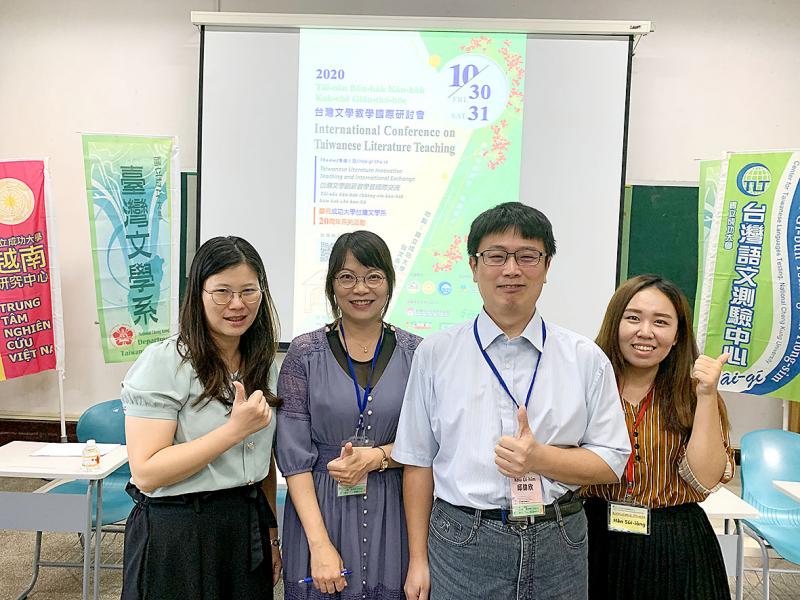
Photo courtesy of Tan Le-kun
While the creators tried to keep the content as close as possible to the German original, they also wanted to infuse a Taiwanese flair into the language to fit the growing idea of “glocalization.” Translator Khu Ui-him (邱偉欣) says the common Chinese translation for “Hansel and Gretel” is “Candy House” (糖果屋), which neither stays true to the original nor promotes local culture.
“We want to show through the book that not only can Hoklo express the intricacies of different languages across the world, it can also be used creatively in unique ways that cannot be achieved in Mandarin or other tongues,” project leader Tan Le-kun (陳麗君) says. “We hope that this can also help the transmission of Taiwanese culture to the world.”
With the financial support of Rotary Club of Taipei, Tan plans to release 11 more translated storybooks. The next one will be the Canadian classic, Anne of Green Gables.
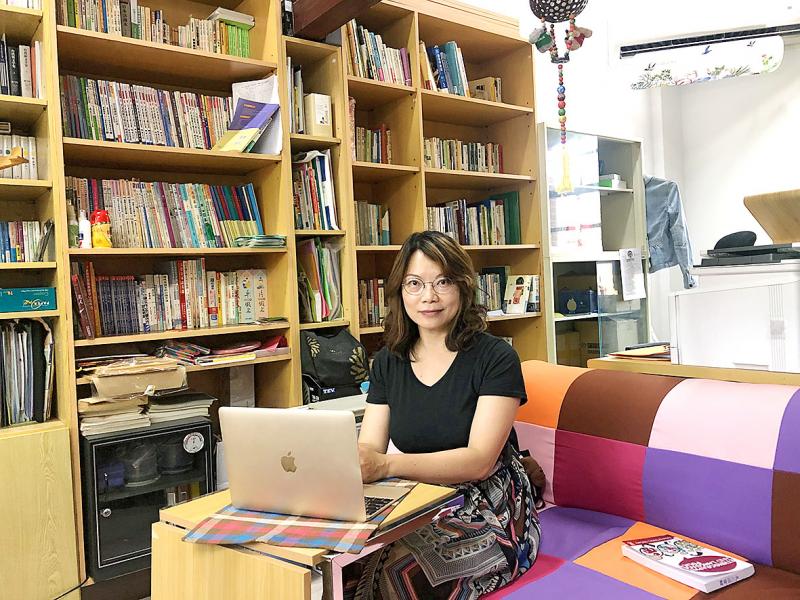
Photo courtesy of Tan Le-kun
“When I was trying to teach my child to read Hoklo, I had a very hard time finding resources,” Tan says. “If we really want to promote the teaching of local languages, we also need to develop a large corpus of reading material.”
PROMOTING THE LANGUAGE
Tan, an assistant professor at NCKU’s Department of Taiwanese Literature, first wrote the proposal for the project in 2017, but could not find any publisher willing to take it on.
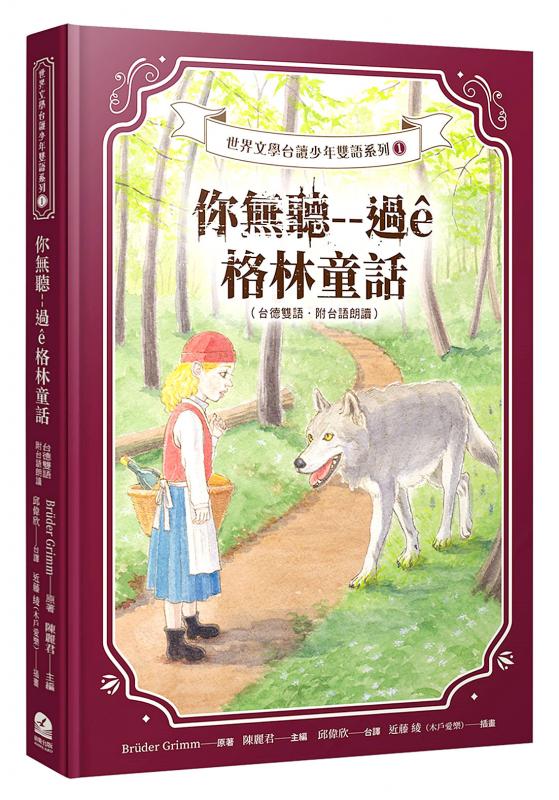
Photo courtesy of Tan Le-kun
Tan says that Taiwan’s rich local languages are often overlooked when promoting the nation’s culture to the world. It doesn’t help that due to past government policy, these languages are still stigmatized as vulgar, low class and primarily used to insult people.
“Although this stereotype is gone on the surface, it’s not that easy to erase such deep brainwashing,” she says.
Anne of Green Gables translator Ng Tsiau-sui (黃昭瑞), also shares Tan’s sentiment and passion. As a high school English teacher, she noticed that her students see English as a legitimate language but finds it “strange” that she spoke Hoklo to her colleagues and her child. She hopes that the translations can help the students see Hoklo as a language that’s just as viable as English.
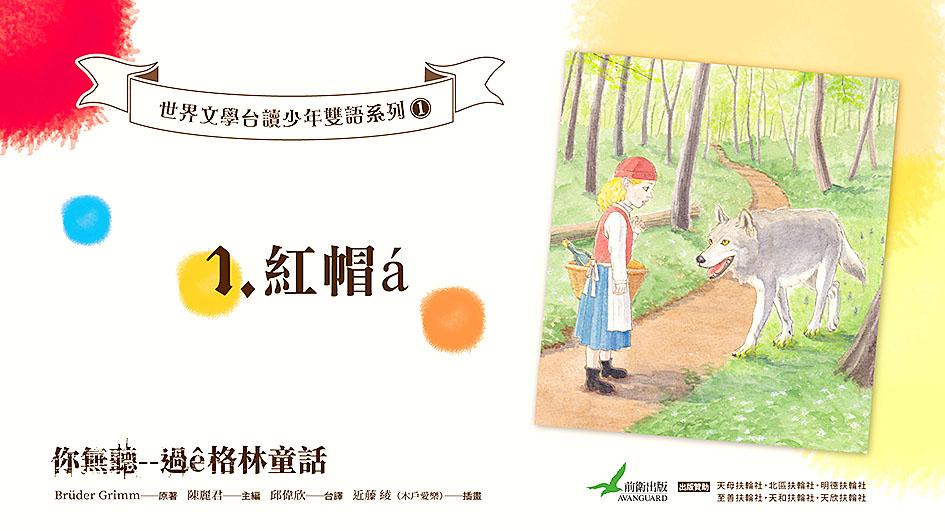
Photo courtesy of Tan Le-kun
The project stalled until the Taipei Tianmu Rotary Club’s Beautiful Formosa (美哉福爾摩沙) fund stepped in.
“We want young people to understand and love Taiwan,” then-Beautiful Formosa chairman Jake Chu (褚繼堯) says. “We had been wanting to promote Taiwanese literature, so we traveled to Tainan [to meet Tan] and we hit it off immediately.”
Tan recruited Khu, a doctoral student at the department, as translator for the Brothers Grimm book. Khu earned a PhD in developmental biology from the University of Cologne, but he became heavily involved in promoting Hoklo literature after returning to Taiwan and eventually switched fields.
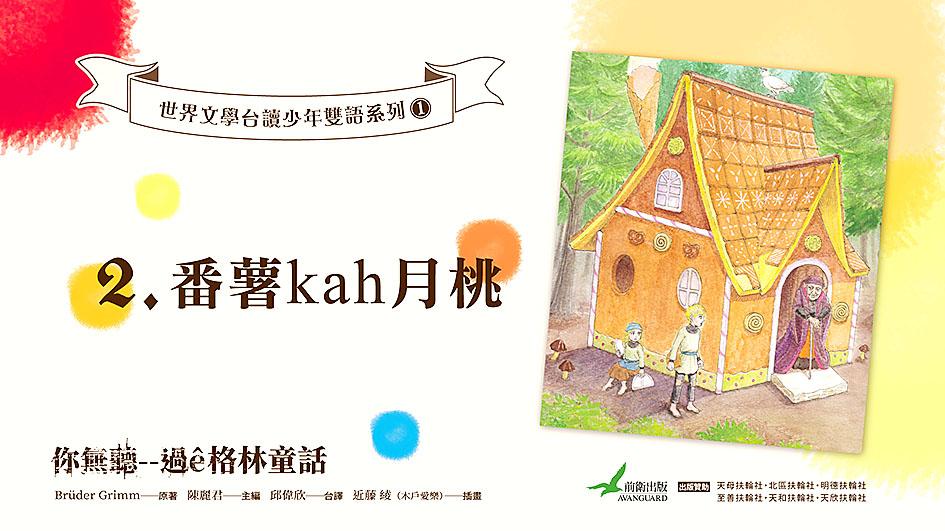
Photo courtesy of Tan Le-kun
“The biology field in Taiwan will be fine without me,” he says. “But the field of Taiwanese languages and culture really needs more help. I saw the project as a chance to try using Hoklo to interpret other cultures. It was quite a challenge, but it can help the language become richer.”
Determined to make the content as authentic as possible, Khu chose to translate from the 19th-century edition, only to realize that the German used was differently from what he learned. He pushed forward anyway, and was able to deliver after a great deal of research
STANDARDIZING THE TEXT
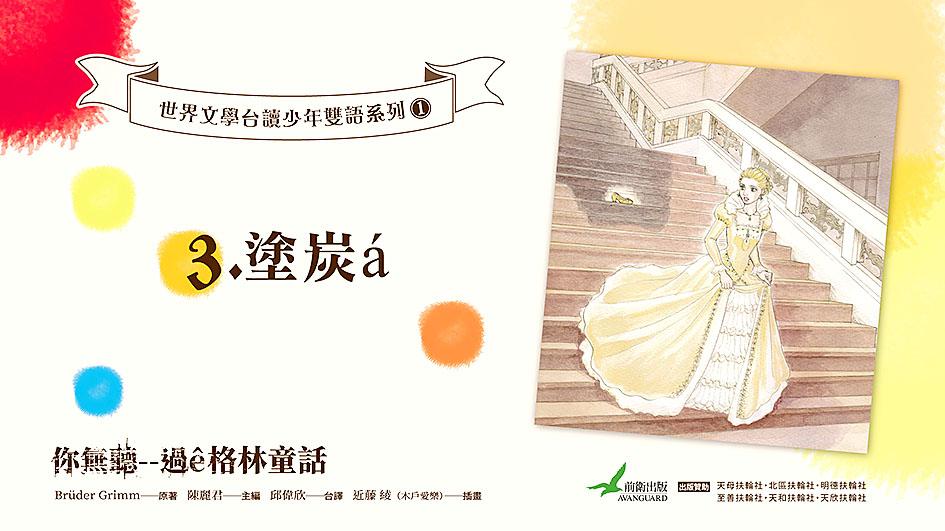
Photo courtesy of Tan Le-kun
Hoklo-language teacher Lim Guah-ngoo (林月娥) not only served as proofreader, but enjoyed brainstorming what local elements to add to the translation.
“If you don’t localize the stories, they only provide a superficial global perspective,” she says. “It’s like duckweed floating on the water without roots. We insist on presenting the stories authentically but with a local voice, so that the young readers have a solid foundation of both sides. Only then can they view the world with an open mind.”
Lim and fellow proofreader Peh Le-hun (白麗芬) were also in charge of standardizing the Hoklo text in a mixture of Chinese characters and Romanization. The team feels that this is the best way to present the language, but it was a task to ensure consistency since there’s no industry standard.
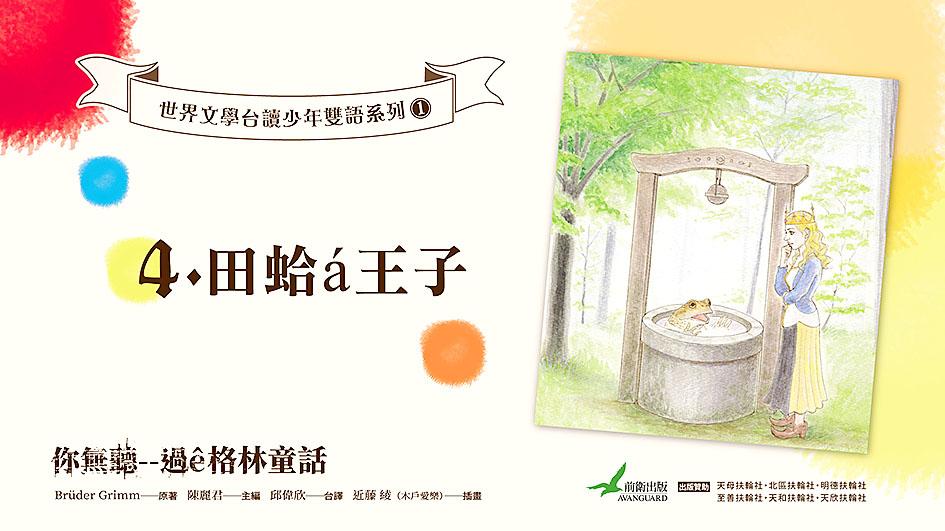
Photo courtesy of Tan Le-kun
Lim says that since many Hoklo words don’t have Mandarin equivalents, it’s hard to write it completely with Chinese characters. Some have invented new characters to represent these words, but they’re often unintelligible or confusing to readers. Lim and Tan prefer only using easily recognizable characters that have clear Mandarin equivalents, and filling in the rest with the Latin alphabet. Characters that have different meanings in Mandarin and Hoklo are also eliminated to avoid confusion.
“One of our goals is to push for standardization of this format, as there’s no clear consensus on when to use Chinese characters and when to use Romanization,” Tan says.
It doesn’t matter how proficient one’s Hoklo is as Tan welcomes anyone with a passion for the language to help out. Ng is not fully confident in her abilities, for example, but she is glad that there’s a solid proofreading team to support her.
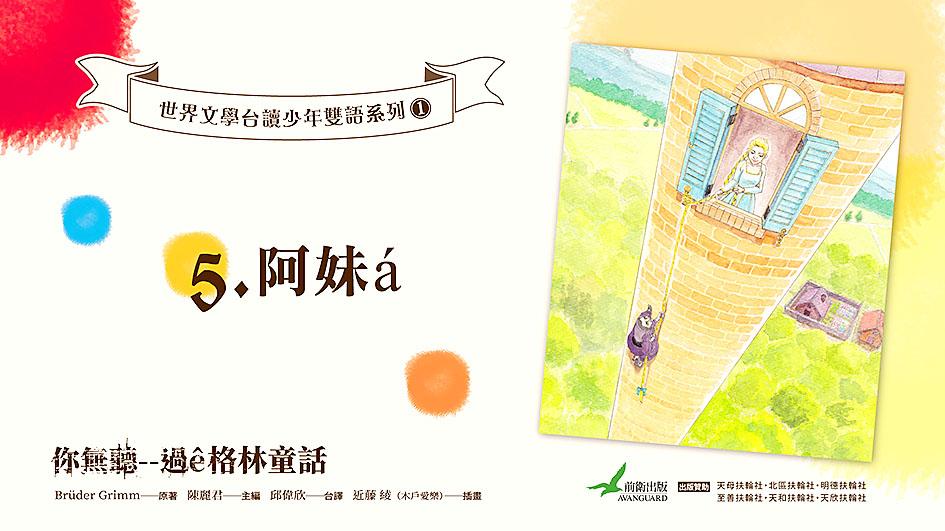
Photo courtesy of Tan Le-kun
“This is something I do on a daily basis anyway,” she says. “I translate English stories into Hoklo and read it to my child. We’re just committing it to the page.”

In late October of 1873 the government of Japan decided against sending a military expedition to Korea to force that nation to open trade relations. Across the government supporters of the expedition resigned immediately. The spectacle of revolt by disaffected samurai began to loom over Japanese politics. In January of 1874 disaffected samurai attacked a senior minister in Tokyo. A month later, a group of pro-Korea expedition and anti-foreign elements from Saga prefecture in Kyushu revolted, driven in part by high food prices stemming from poor harvests. Their leader, according to Edward Drea’s classic Japan’s Imperial Army, was a samurai

Located down a sideroad in old Wanhua District (萬華區), Waley Art (水谷藝術) has an established reputation for curating some of the more provocative indie art exhibitions in Taipei. And this month is no exception. Beyond the innocuous facade of a shophouse, the full three stories of the gallery space (including the basement) have been taken over by photographs, installation videos and abstract images courtesy of two creatives who hail from the opposite ends of the earth, Taiwan’s Hsu Yi-ting (許懿婷) and Germany’s Benjamin Janzen. “In 2019, I had an art residency in Europe,” Hsu says. “I met Benjamin in the lobby
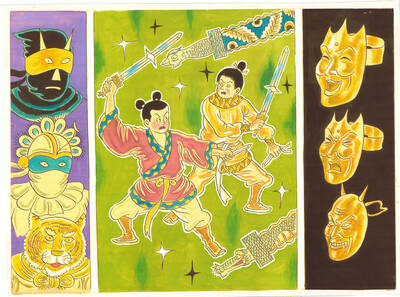
April 22 to April 28 The true identity of the mastermind behind the Demon Gang (魔鬼黨) was undoubtedly on the minds of countless schoolchildren in late 1958. In the days leading up to the big reveal, more than 10,000 guesses were sent to Ta Hwa Publishing Co (大華文化社) for a chance to win prizes. The smash success of the comic series Great Battle Against the Demon Gang (大戰魔鬼黨) came as a surprise to author Yeh Hung-chia (葉宏甲), who had long given up on his dream after being jailed for 10 months in 1947 over political cartoons. Protagonist

The following three paragraphs are just some of what the local Chinese-language press is reporting on breathlessly and following every twist and turn with the eagerness of a soap opera fan. For many English-language readers, it probably comes across as incomprehensibly opaque, so bear with me briefly dear reader: To the surprise of many, former pop singer and Democratic Progressive Party (DPP) ex-lawmaker Yu Tien (余天) of the Taiwan Normal Country Promotion Association (TNCPA) at the last minute dropped out of the running for committee chair of the DPP’s New Taipei City chapter, paving the way for DPP legislator Su